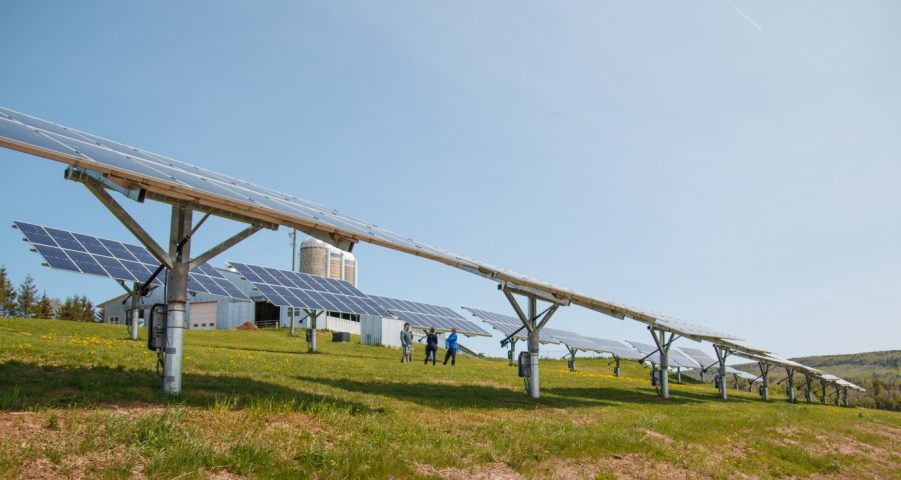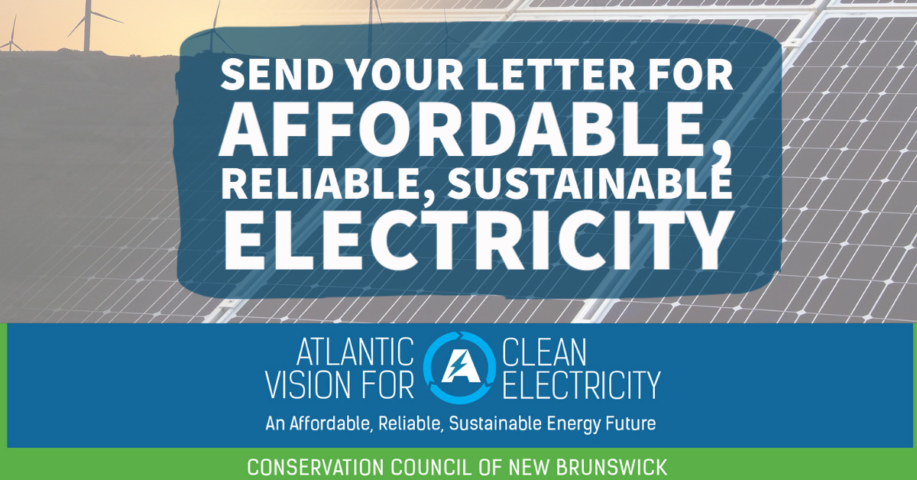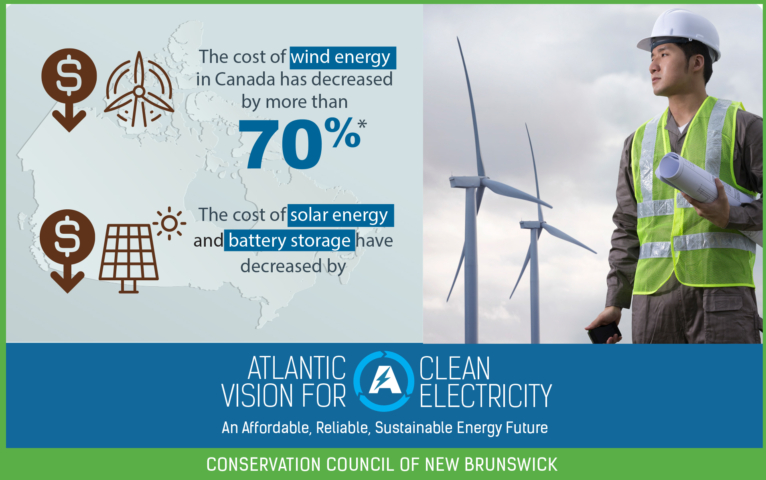Click here for our letter-writing tool to help you tell Premier Higgs and Minister Holland you want an affordable, reliable, and sustainable electricity system in New Brunswick
Unceded and unsurrendered Wolastoqey/Mi’kmaq/Peskotomuhkati territory/Fredericton – The Conservation Council of New Brunswick (CCNB) calls on the provincial government to update its climate plan and to direct NB Power to update its 2020 Integrated Resource Plan (IRP). This call to action is in response to today’s federal commitment to deeper climate action and to greenhouse gas reductions that exceed Canada’s current 2030 target.
The federal government proposes new consultations with Indigenous partners, provinces and territories and Canadians to develop more stringent climate change commitments that reach at least 32% to 40% below 2005 levels by 2030. Canada’s offer of a new climate target for 2030 and an updated national climate framework needs to be ready in time for the United Nations’ November 2021 Conference of the Parties meeting in Glasgow.
“We urge the province to accept the reality of climate change and commit to being a positive partner nationally, and regionally, to protect the health and well-being of New Brunswickers,” says Louise Comeau Director of CCNB’s Climate Change and Energy Program.
New Brunswick’s climate plan expires in December 2021. NB Power recently released an IRP that fails to take into account the most cost-effective opportunities to address climate change.
Electrification is the primary pathway to near-zero greenhouse gas emissions. A climate-friendly electricity system that is affordable and reliable generates electricity from cost-effective renewable technologies to power our homes, businesses and communities.
NB Power’s 2020 IRP does not assess realistic scenarios requiring electrification of the economy, decarbonization of electricity generation, an integrated Atlantic loop, or more stringent greenhouse gas costs from regulation and carbon pricing.
CCNB calls on Premier Higgs and Environment and Climate Change Minister Crossman to ask the Standing Committee on Climate Change and Environmental Stewardship to begin the process of updating the provincial plan focused on achieving new 2030 and 2050 targets. Governments globally are committed to zero greenhouse gas emissions by 2050 (balancing sources and sinks).
To develop the IRP update, CCNB calls on Premier Higgs and Natural Resources and Energy Development Minister Holland to direct NB Power to include deep decarbonisation and regional integration pathways in its IRP and to submit this updated IRP to the Energy Utilities Board (EUB) for Spring 2021 hearings with expert witnesses and public comment.
For more information, contact: Jon MacNeill, Communications Director, Conservation Council of New Brunswick: jon.macneill@conservationcouncil.ca; 506-238-3539



